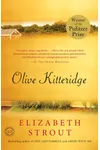Picture a storyteller who captures the heartbeat of small-town America with raw honesty and quiet beauty—meet Elizabeth Strout! Born in Portland, Maine, this Pulitzer Prize-winning novelist weaves tales of ordinary lives with extraordinary depth. Her iconic character Olive Kitteridge has charmed readers and critics alike, making Strout a beloved voice in contemporary fiction.
With a knack for uncovering the hidden vulnerabilities of her characters, Strout invites us to find empathy in the everyday. Her stories, set against the rugged landscapes of Maine and beyond, resonate with anyone who’s ever felt the pull of community or the ache of isolation. Let’s dive into the life and legacy of this literary gem!
The Making of Elizabeth Strout
Elizabeth Strout was born on January 6, 1956, in Portland, Maine, and grew up in small towns in Maine and New Hampshire. Raised in a family that valued storytelling, she developed an early love for observing people and their quirks. After earning a degree from Bates College and later studying law at Syracuse University, Strout realized her true calling was writing. Her early career included short stories published in literary magazines, setting the stage for her novelistic triumphs.
Influenced by authors like Ernest Hemingway and Alice Munro, Strout honed a minimalist yet emotionally rich style. Her small-town upbringing became the backbone of her narratives, blending humor, heartbreak, and humanity. These roots shaped her debut novel, Amy and Isabelle, and laid the groundwork for her literary ascent.
Elizabeth Strout’s Unforgettable Stories
Strout’s bibliography is a treasure trove of character-driven tales. Her breakthrough, Olive Kitteridge (2008), a novel-in-stories, won the Pulitzer Prize for Fiction. It follows Olive, a prickly yet endearing Maine schoolteacher, through her relationships and inner struggles. The book’s HBO adaptation, starring Frances McDormand, brought Olive to an even wider audience.
Other gems include Amy and Isabelle (1998), a poignant story of a mother-daughter rift, and My Name Is Lucy Barton (2016), a spare yet powerful exploration of memory and family. Strout’s 2021 novel, Oh William!, revisits Lucy Barton, delving into love and self-discovery with her signature nuance. Her style—marked by crisp prose, psychological depth, and interconnected narratives—creates a tapestry of human experience that feels both intimate and universal.
Strout’s themes often center on resilience, community, and the complexities of relationships. Her Maine settings pulse with authenticity, reflecting her deep connection to the region. Whether exploring grief or quiet triumphs, she crafts stories that linger long after the final page.
Why Elizabeth Strout Matters
Elizabeth Strout’s impact on contemporary fiction lies in her ability to elevate the ordinary. Her characters—flawed, relatable, and deeply human—mirror our own struggles and joys, fostering empathy in readers. By championing small-town narratives, she’s carved a niche in American literature, earning accolades like the Pulitzer and international acclaim.
Strout’s influence extends beyond bookshelves. Her work inspires writers to embrace authenticity and explore the beauty in everyday moments. As a storyteller, she reminds us that every life, no matter how quiet, holds profound stories worth telling.
About Elizabeth Strout
- Born: January 6, 1956, Portland, Maine
- Key Works: Olive Kitteridge, My Name Is Lucy Barton, Amy and Isabelle
- Awards: Pulitzer Prize for Fiction (2009), The Story Prize
- Fun Fact: Strout’s character Olive Kitteridge was inspired by people she observed in her Maine hometown.
Ready to fall in love with Elizabeth Strout’s world? Grab Olive Kitteridge and discover the magic of her soulful, small-town stories!














